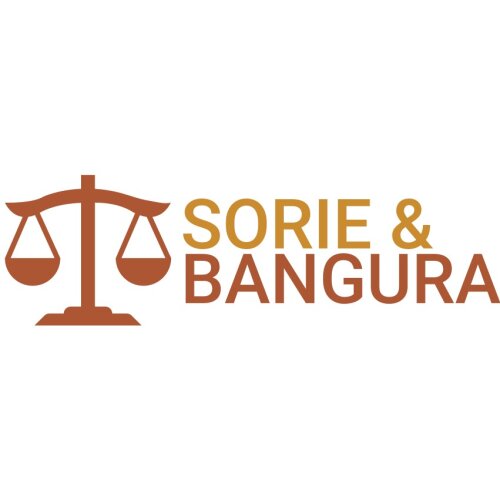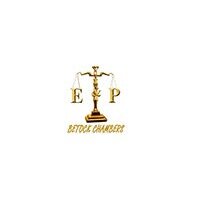Best Mining Law Lawyers in Sierra Leone
Share your needs with us, get contacted by law firms.
Free. Takes 2 min.
Or refine your search by selecting a city:
List of the best lawyers in Sierra Leone
About Mining Law in Sierra Leone
Mining Law in Sierra Leone governs the exploration, extraction, processing, and export of mineral resources within the country. Mining is a significant sector in Sierra Leone's economy, rich in diamonds, gold, rutile, bauxite, and other minerals. The legal framework aims to ensure that mineral activities are conducted responsibly, with respect for environmental standards, safety regulations, and consideration for local communities. The Mines and Minerals Act 2009 is the primary law regulating mining activities, supported by related regulations, government policies, and international best practices.
Why You May Need a Lawyer
Mining law can be complex, involving multiple legal requirements and compliance obligations. You may require the assistance of a lawyer in several situations related to mining in Sierra Leone, such as:
- Applying for or renewing a mining license or permit
- Negotiating and drafting mining agreements and contracts
- Ensuring compliance with environmental, labor, and safety regulations
- Dealing with disputes with local communities, government authorities, or business partners
- Managing land acquisition and compensation issues
- Addressing allegations or findings of illegal mining operations
- Understanding the fiscal and tax obligations related to mining activities
- Facilitating mergers, acquisitions, or joint ventures in the mining sector
- Advising on export regulations and international sales of minerals
- Protecting intellectual property, trade secrets, and confidential information related to mining operations
Local Laws Overview
The key aspects of mining law in Sierra Leone include:
- Mines and Minerals Act 2009: The principal legislation that governs mining operations, including licensing, permits, rights, and obligations of stakeholders in the sector.
- Licensing Regime: All mineral rights, such as reconnaissance, exploration, artisanal mining, small-scale, and large-scale mining licenses, are granted within a structured legal process.
- Environmental Regulations: Mandatory Environmental Impact Assessments (EIAs) and Environmental Management Plans (EMPs) must be prepared and approved for many mining activities.
- Local Content and Community Agreements: Provisions require mining companies to employ Sierra Leonean nationals and sign Community Development Agreements (CDAs) with affected communities.
- Land Use and Compensation: Mining rights may impact landowners and local communities, making land acquisition and compensation legally significant issues.
- Taxation and Royalties: The law establishes the tax regime, royalties, and other fiscal obligations for mining companies.
- Health and Safety: Operators are required to ensure health and safety standards at mining sites.
- Enforcement and Dispute Resolution: Legal remedies, administrative actions, and dispute resolution mechanisms are provided under the Act.
- Prohibition of Illegal Mining: Strict penalties are enforced for operating without the proper licenses or failing to meet legal standards.
Frequently Asked Questions
What types of mining licenses are available in Sierra Leone?
Licenses include reconnaissance, exploration, artisanal mining, small-scale mining, and large-scale mining licenses. The type depends on the scale and purpose of the mining operation.
Who can apply for a mining license?
Both local and foreign individuals or corporate entities can apply, subject to meeting the eligibility criteria set out in the Mines and Minerals Act 2009 and relevant regulations.
What are the environmental obligations for mining companies?
Mining companies must conduct Environmental Impact Assessments and produce Environmental Management Plans before certain operations begin. Ongoing environmental monitoring and reporting are also required.
How are local communities protected under mining law?
Mining companies must sign Community Development Agreements with affected communities, ensuring fair compensation, community benefits, and consultation in project planning.
What are the tax and royalty obligations?
Mining companies are required to pay royalties on minerals produced and exported, as well as taxes in accordance with Sierra Leone's tax laws.
How is land acquisition for mining handled?
Land needed for mining may be acquired through agreements with landowners or the government, supported by compensation frameworks outlined in law and regulations.
What happens if someone is found mining illegally?
Illegal mining is prohibited and subject to severe penalties, including fines, imprisonment, confiscation of equipment, and closure of operations.
Do mining licenses need to be renewed?
Yes, mining licenses have specific validity periods and must be renewed by following the stipulated procedures before expiration.
Can mining rights be transferred or sold?
Mining rights may be transferred or assigned, but this requires approval by the relevant government authority and must meet all legal requirements.
How can disputes in mining be resolved?
Disputes may be resolved through negotiation, mediation, arbitration, or litigation, as per agreements made or as provided under the Mines and Minerals Act.
Additional Resources
For more detailed guidance or assistance, consider reaching out to the following Sierra Leonean entities:
- Ministry of Mines and Mineral Resources
- National Minerals Agency (NMA)
- Environmental Protection Agency (EPA) Sierra Leone
- Sierra Leone Chamber of Mines
- Law Society of Sierra Leone
- Local universities and legal aid organizations with expertise in mining law
Next Steps
If you need legal assistance with mining law matters in Sierra Leone, consider taking the following steps:
- Identify the specific mining law issue you are facing, whether it involves licensing, community relations, contracts, compliance, or dispute resolution
- Collect all relevant documents including licenses, correspondence, contracts, reports, receipts, and legal notices
- Consult a qualified lawyer with expertise in mining law, ideally one familiar with Sierra Leone's legal framework and mining sector
- Reach out to relevant governmental bodies, such as the Ministry of Mines or National Minerals Agency, for official guidance or clarification
- Stay informed about ongoing regulatory updates, reforms, and best practices affecting mining law in Sierra Leone
Engaging professional legal counsel early helps ensure your interests are protected and your operations remain compliant with all applicable laws and regulations.
Lawzana helps you find the best lawyers and law firms in Sierra Leone through a curated and pre-screened list of qualified legal professionals. Our platform offers rankings and detailed profiles of attorneys and law firms, allowing you to compare based on practice areas, including Mining Law, experience, and client feedback.
Each profile includes a description of the firm's areas of practice, client reviews, team members and partners, year of establishment, spoken languages, office locations, contact information, social media presence, and any published articles or resources. Most firms on our platform speak English and are experienced in both local and international legal matters.
Get a quote from top-rated law firms in Sierra Leone — quickly, securely, and without unnecessary hassle.
Disclaimer:
The information provided on this page is for general informational purposes only and does not constitute legal advice. While we strive to ensure the accuracy and relevance of the content, legal information may change over time, and interpretations of the law can vary. You should always consult with a qualified legal professional for advice specific to your situation.
We disclaim all liability for actions taken or not taken based on the content of this page. If you believe any information is incorrect or outdated, please contact us, and we will review and update it where appropriate.
Browse mining law law firms by city in Sierra Leone
Refine your search by selecting a city.












